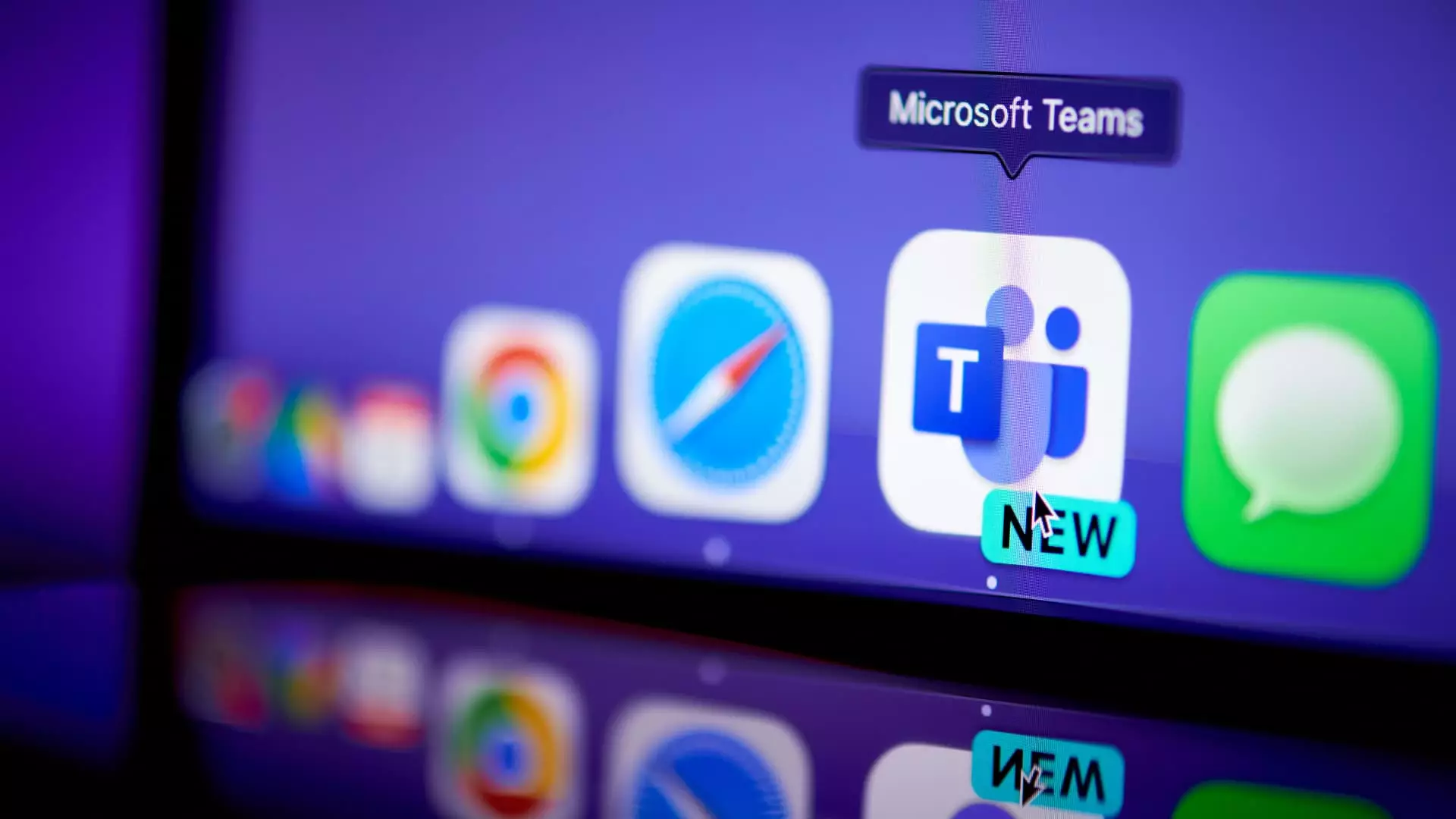In a recent turn of events, Microsoft has taken steps towards unbundling its dominant Office 365 and Microsoft 365 software suites from its Teams communication platform. While this may appear to be a step in the right direction, we must critically analyze the implications of such a move. It’s essential to understand that this isn’t merely a compliance act; it reflects a much larger conversation about monopolistic behavior in the tech industry. The fact that Europe is continually scrutinizing Microsoft’s practices is not just about Teams, but indicative of a broader issue—that the lines between innovation and dominance are often blurred in Silicon Valley.
With Office products, which include longstanding staples like Word and Outlook, under their belt, Microsoft holds significant market influence. The announcement that they will sell versions of these products without Teams at a reduced price only scratches the surface of competitive fairness. The real question lies in whether Microsoft is attempting to placate regulators while maintaining the status quo that has enabled its monopoly-like structure. Such actions invite skepticism; they are less about consumer choice and more a maneuver to reduce impending legal repercussions, while still preserving its vast ecosystem in practical terms.
The Illusion of Choice
Let’s consider the word “choice.” Microsoft claims that these commitments will offer European customers increased options, but true choice can only exist when consumers have equitable access to various competing products without coercion. By bundling Teams with Office for so long, Microsoft effectively forced businesses and individual users to adopt Teams alongside their preferred productivity tools, limiting true market competition. The rationale behind their unbundling now seems more a tactical retreat than an earnest commitment to fairness.
When addressing such fundamental market dynamics, one must be cautious. Microsoft’s attempt at increased interoperability with competing applications isn’t entirely altruistic; it suggests that they recognize their previous practices stifled innovation elsewhere. The opportunity to switch data to competing products points to an effort to dilute the sticky nature of their ecosystem, but transitioning away from Microsoft isn’t as simple as flipping a switch. Businesses are often heavily invested in the Microsoft universe, rendering true competition a distant prospect for many.
Why the Silence from Tech Giants?
In the wake of this announcement, the reactions from other tech giants have been surprisingly muted. One cannot help but wonder why entities like Google or Apple—companies that also play in this landscape—haven’t jumped into the fray vocally criticizing Microsoft’s practices. Have they grown complacent with their own dominions, or do they fear backlash should they too find themselves under the same scrutiny? The absence of a backlash signals a concerning complacency among industry influencers.
Slack, now part of Salesforce, bravely brought attention to Microsoft’s practices back in 2020, compelling regulatory action. However, other competitors remain disappointingly quiet. This could reflect a broader systemic issue: current tech giants often prioritize their own interests over dismantling monopolistic behavior, thus effectively nurturing an ecosystem that tolerates, if not endorses, anticompetitive tactics.
Is Regulation the Answer?
Many critics argue that regulatory interventions alone cannot save competition when firms like Microsoft continue to reshape barriers to entry for startups and smaller companies. Regulation should act as a guardrail, but it cannot substitute the need for ethical conduct from these titans of industry. Microsoft’s commitments might alleviate some immediate pressure from European regulators, but this doesn’t eliminate the necessity for long-term ethical standards within such influential corporations.
There exists a fine line between compliance and authenticity in these actions. Microsoft’s motives must continuously be under scrutiny to ensure they are genuinely addressing monopolistic behavior rather than simply papering over systemic issues. If we allow companies to mask their monopolistic tendencies behind temporary fixes, we risk creating an environment where innovation takes a back seat to compliance theater.
The power of these tech giants can often outweigh the capacities of regulations intended to contain their influence. For a truly competitive market to flourish, a cultural shift towards transparency and ethical business practices is imperative. Only then will users not just experience superficial choices but will feel empowered to leverage genuine competition in a vibrant tech landscape.

